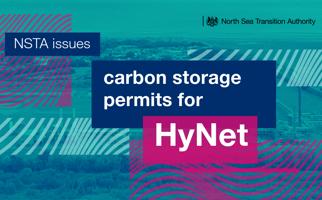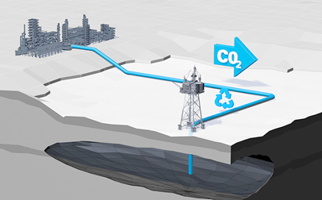
The NSTA is the regulator for flaring and venting under the Energy Act 1976 (as amended by the Energy Act 2016) and the Petroleum Act 1998. This legislation requires operators to have consents in place for the flaring and venting of hydrocarbons during production operations.
The NSTA's Strategy, which came into force in February 2021, incorporates a range of net zero obligations for the UK oil and gas industry, including a requirement for relevant persons to, in securing that the maximum value of economically recoverable petroleum is recovered, take appropriate steps to assist the Secretary of State in meeting the net zero target. This includes reducing greenhouse gas emissions from sources such as flaring and venting.
The OGA Plan on emissions reduction, published on 27 March 2024, sets out the NSTA’s requirements for how relevant persons can meet the Central Obligation, as set out in the Strategy, for Green House Gas (GHG) emissions reductions from oil and gas extraction.
The Plan emphasises that operators should take action and budget to reduce flaring and venting, with the latter focused on methane, continuing the NSTA’s ongoing work on this. The Plan also sets out a clear requirement that operators monitor and reduce fugitive emissions.
The NSTA requires industry to adhere to the following principles in relation to flaring and venting across all UKCS areas and oil and gas lifecycle stages:
- flaring and venting and associated emissions should be at the lowest possible levels in the circumstances
- zero routine flaring and venting for all by 2030
- all new developments should be planned and developed on the basis of zero routine flaring and venting.
Process
- Licensees and terminal/Facilities operators are required to apply for consent to flare and/or vent gas emitted from their petroleum installations and relevant infrastructure. Applications for both offshore and onshore consents should be submitted via the Energy Portal by the Operator covering the relevant installation or hub.
- The new Field Consents system now incorporates onshore Facilities and all applications should be submitted online through the Energy Portal. No applications will be accepted in writing. The terminal operator should apply for consents on behalf of the licensees using the terminal.
- Prior to submitting a consent application, operators and licensees should refer to the guidance below. The NSTA may, where appropriate, require further information to ensure that the objective of the regime is met.
- The operator should take the initiative in keeping in close contact with the NSTA at all stages, from design through appraisal, construction, commissioning, production and decommissioning. Operators should also ensure that they keep in contact with DESNZ OPRED regarding any proposed changes to flaring and venting.
- Please note that separate permits or consents connected with environmental legislation may also be required. This includes under the Emissions Trading Scheme, and from the Environment Agency or the Scottish Environmental Protection Agency for onshore petroleum installations and facilities. Reference should be made to those bodies for more detail.
- If you have requirement to flare or vent but no longer have an extant licence you should contact DESNZ at opred@energysecurity.gov.uk.
Annual Consents Exercise
For further information on flaring and venting (including production) whether onshore or from facilities or from the UKCS in relation to field consents that are part of the Annual Consents Exercise, please see the link below:
Annual Consents Exercise
Some screens in these videos have been updated but the process remains the same.
Guidance on flaring and venting
Click to on the item to download.
Guidance on flaring and venting
Click to on the item to download.
Penalties for flaring and venting breaches
Click on the item to download
Penalties for flaring and venting breaches
Click on the item to download
Consents & Authorisations Manager
North Sea Transition Authority
3rd Floor
1 Marischal Square
Broad Street
Aberdeen
AB10 1BL
Email: consents@nstauthority.co.uk


